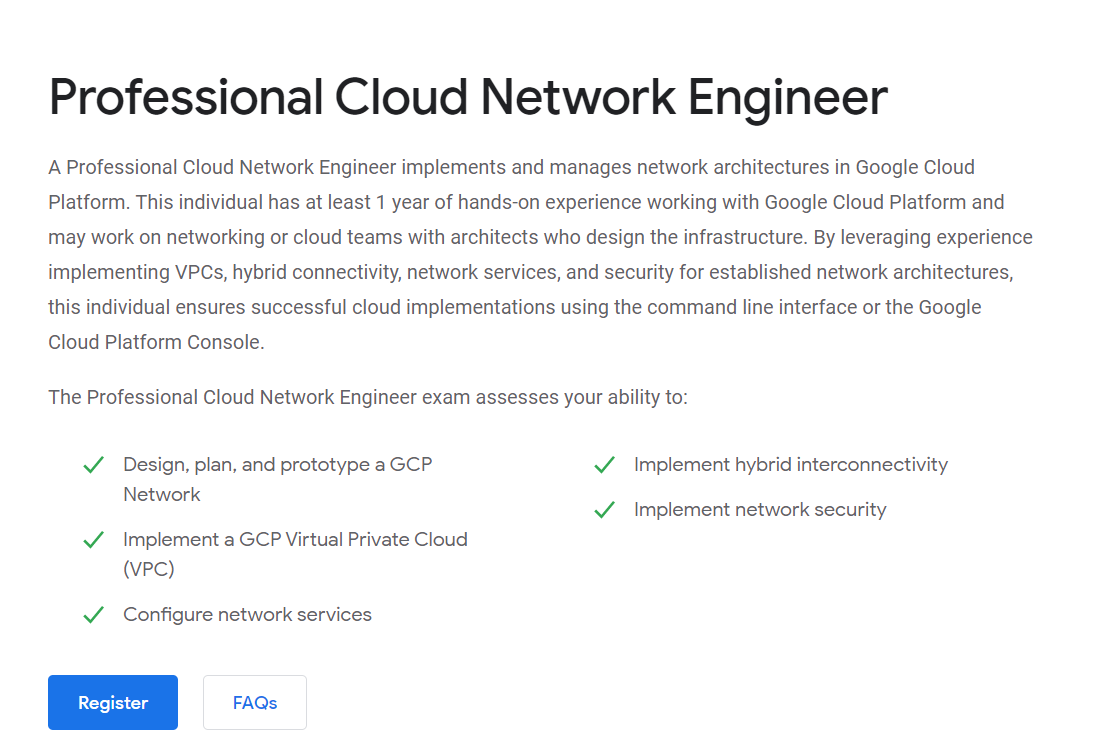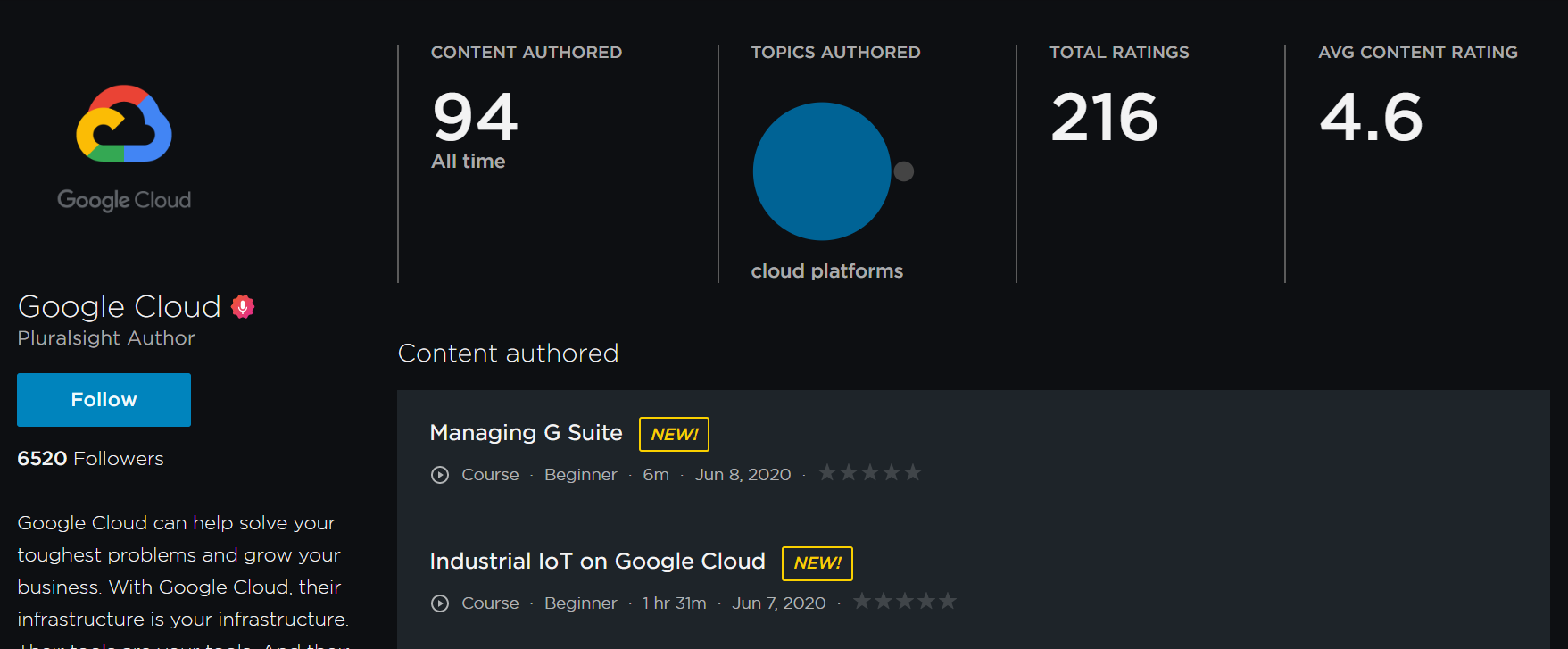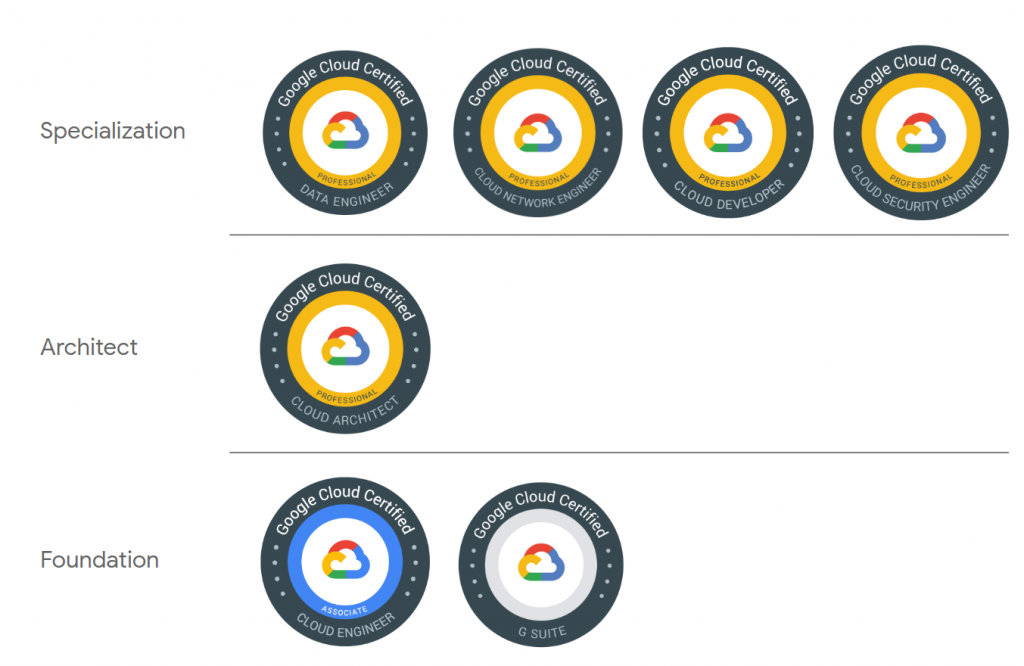Cloud Certifications: GC Professional Cloud Network Engineer
Jul 15, 2020 • 8 Minute Read
Introduction
This guide provides information and resources to help you prepare for the Google Cloud Professional Cloud Network Engineer certification. It also gives you some tips and recommendations based on the experiences of other network engineers and cloud professionals who are certified in Google Cloud.
Who This Certification is For
This certification has been prepared for network engineers with at least three years of experience managing network components and interfaces on Google Cloud.
If you have experience in hybrid connections, virtual networks, firewalls, load balancers, and managing networks both from the GC console and by command line, this certification is for you.
What This Certification is For
The main reasons for taking and obtaining this certification are:
- Validate your knowledge and experience managing networks in highly complex and demanding environments
- Show your experience with GC technologies, both to your current employer and potential future employers
- Show your colleagues that you have the capabilities to tackle difficult and complex projects.
- Meet the growing demand for certified engineers to participate in new initiatives and support digital transformation, as a network engineer
Applicable Exams
To achieve this certification, you have to pass just one exam:
- Professional Cloud Network Engineer : This exam measures your capabilities to connect GC infrastructure and services to take advantage of keeping everything in the cloud. You must also have the skills to connect Cloud infrastructure with on-premise, maintaining a focus on security and high availability to deliver high-quality services for all kinds of demands.
Your preparation for the exam should look like this:
- Get an overview of all GC technologies (although not all are consulted in the exam, it is worth understanding what you can connect and what restrictions you have)
- Take a subset of the technologies and study each one in detail (a list is mentioned later in this guide and they are on the exam agenda)
- Practice with these technologies from the GC console (you must have your GC account enabled)
- Install and practice creating the same resources and technologies using command line
Remember that the key here is to look beyond the technologies separately to how they connect with each other to offer an adequate service in each project.
Prerequisites
There are no specific prerequisites, but it is ideal to have at least two to three years of experience connecting networks in the cloud and at least one year using GC for it, either through graphical interface (GC console) and command line.
You should also have a broad understanding of the various services.
Finally, in addition to how to implement each service, make sure you also understand the best practices for these services (scaling, security, hybrid connections, high availability, etc.).
Skills Measured
The exam measures the following skills:
- Designing, planning, and prototyping a GC network
- Implementing a GC Virtual Private Cloud (VPC)
- Configuring network services
- Implementing hybrid interconnectivity
- Implementing network security
- Managing and monitoring network operations
- Optimizing network resources
For all of these skills, you must be able to explain and answer how to do it through the GC console or command line.
Technologies
You must also understand and have experimented with the following technologies:
- Cloud DNS, Internal DNS, and Integrating on-premises DNS with GCP
- Cloud Load Balancing, HTTP(S) load balancer, TCP and SSL proxy load balancers
- Network load balancer, Internal load balancer
- Google private access
- Containers (Google Kubernetes Engine) for networking
- IAM
- Virtual Machines
- Tags and metadata in services
- Virtual Private Cloud and networks
- VPC peering (direct and carrier)
- IP addressing
- Firewall, rules and routes
- Interconnect (dedicated and partner)
- Cloud NAT, instance-based NAT, NAT Gateways
- VPC flow logs
- Private clusters
- Cloud CDN
- Cloud Router and BGP
- Site-to-site IPsec VPN
- Cloud Armor
- Network endpoint groups
- Automation
- Autoscaling
For each of these technologies, in addition to knowing and experimenting with them, be prepared to connect them to build a robust and scalable platform.
As you are studying and preparing for the exam, if you see a detail that seems very specific and you think you'll never see it in a real project or be asked about it on the exam, think again. These exams are very specific, and as a skilled engineer, you must be prepared for any possibility.
Resources
Pluralsight Courses
Pluralsight has very good courses on each of the technologies mentioned, developed by experts in the industry. All the content relevant to this exam can be found here.
It would also be a good idea to follow Pluralsight's Networking Path to study for this exam because it involves studying many technologies in detail, similar to what you will see on the Professional Cloud Networking Engineer exam.
Practice Exam
To help you familiarize yourself with the exam, Google has a practice test to help you understand the complexities and what will be measured on the actual exam.
Compensation and Employment Outlook
The benefits of obtaining this certification include:
- Being able to participate in projects of high technical complexity related to issues of global networks
- Recognition from the industry and your colleagues
- Direct benefits from GC, such as being registered in the Google certificates directory where anyone can find you, badges to share with the community, and other recognitions and discounts
- Qualification for better jobs—the certification is valid anywhere in the world
According to Ziprecruiter, the annual salary of a cloud network engineer on average reaches US $100,000, or more if you have additional experience and certifications (like this one).
The Certification Path
As mentioned, you can take this certification without having another one as a prerequisite. But if you have never taken a certification exam, I recommend that you start with a less complex exam (Foundation, for example) so that you understand the dynamics of the exam.
Conclusion
Finally, some advice for your certification plan for becoming a GC Cloud Networking Engineer:
- It's good to learn the technologies, but you should also focus on how they connect to each other on a global and high availability platform.
- You should also study the best practices that GC suggests for its technologies and understand various use cases for them.
- Be very disciplined in your study and don't assume that you know a technology well if you have not studied it, since there are always details that can deepen your understanding.
- Be an engineer with multiple facets—that is, skills in fully cloud environments, hybrid environments, advising best practices for migrating to the cloud, and how to help keep global applications secure and high.
Achieving this certification will mean taking a firm step in your professional career, however you want to develop. Congratulate yourself for taking this step, and give your 100% to become a certified and recognized engineer.
I wish you a lot of success in becoming a GC Professional Cloud Networking Engineer!
Advance your tech skills today
Access courses on AI, cloud, data, security, and more—all led by industry experts.






